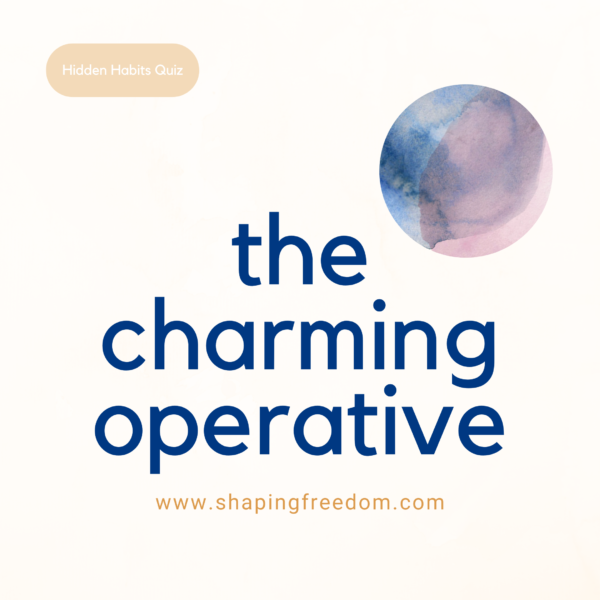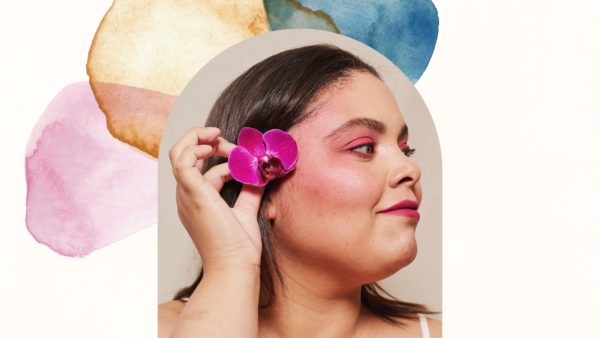The Charming Operative
Find out what's really blocking you from having the healthy, supportive and fulfilling relationship you want.

The Hidden Fear:
If other people see you the way you see yourself, you’d be rejected or ridiculed.
WHAT IT LOOKS LIKE IN RELATIONSHIPS:
Your wife calls you from work excited to tell you the news that she’s being honored at a special celebration dinner next week. Instead of offering congratulations, you ask in a sarcastic tone if this “honor” comes with a raise or is it just for show? She says, “I’m just happy they recognize my work. It feels really good to be acknowledged and valued for my efforts.” You tell her she’s being taken advantage of and that if they really valued her, they’d pay her more money instead of hosting a silly, meaningless dinner. “Can’t you just be happy for me,” she asks? You circle your response back to you, “Of course I’m happy for you, honey. Isn’t that obvious by how much I’ve done for you. I’m the one picking up the slack at home and taking care of the kids while you’re at work, remember?”
How this habit serves you:
Charming, persuasive and a high achiever, your natural leadership skills, playful humor and ability to easily relate to others makes you quite popular in the workplace and among friends. In a position of power, your friendly, social and authentic kindness naturally inspires and brings out the best in others. You have mastered the art of gently guiding others to follow your lead. Being highly adept at conflict resolution and making quick, smart decisions on the fly in complex or highly charged environments, you achieve remarkable results in your professional endeavors.
How this habit hinders you:
The high level of confidence and self assuredness you cast out into the world masks your hidden feelings of inadequacy or unworthiness you feel within. Deeply afraid of rejection and ridicule, you use all forms of manipulation (often unknowingly) by taking advantage of other people’s weaknesses or soft spots, playing on their emotions or using your expertly refined craft of cross examination to convince others you are superior. You may even belittle or downplay other people’s achievements as a way to make you feel better about yourself. You’d never share your insecurities with those closest to you and for good reason. Because you believe if they saw you the way you see yourself, you’d be rejected or ridiculed. These unhealthy habits often develop if you were raised by parents who valued achievements or performance over all else or you were repeatedly told you were superior to other children. This can also develop after experiencing extreme physical or emotional trauma.
What this habit can teach you about yourself:
While extremely detrimental in forming healthy relationships, this habit may have supported you in achieving high level positions and impressive results. Because you learned or formed the belief that performance and achievement are the only indicators of self-worth, you’ve adopted habits to protect this fragile sense of self. Underneath the facade you’ve so carefully curated is a highly sensitive and empathetic person who craves reassurance, admiration and acknowledgement.
You get hurt easily so it’s natural to want to protect yourself by “puffing” yourself up. However, belittling, gaslighting or creating confusion in intimate relationships will never return the love, security and adoration you crave. True intimacy requires a slow and steady dance between people who feel safe, trust each other and take responsibility for their insecurities and fears.

Deeper Discovery Questions:
How do you measure self-worth?
Do you often withhold affection from your partner as a way to get their attention?
Do you expect attention and admiration from others in return for doing something nice for them?
Are you quick to identify faults and weaknesses in others?
Do you use guilt or shaming to get what you want?
Do you feel jealous and act on those feelings when others succeed?


Self-guided Exercise:
Becoming aware of your insecurities helps you discover and work through deeply rooted beliefs that may be negatively impacting how you treat others in close relationships.
Make it a daily habit of exploring what you believe about yourself. Once you bring attention to these underlying thoughts and beliefs, you can identify how and when they were formed. You can do this by getting still and asking questions like:
- How am I feeling right now?
- What am I afraid of?
- Where in my body do I feel this feeling?
- What is this feeling or fear trying to tell me/teach me?
- When was the last time I felt this way?
- When was the first time I felt this way?
As you explore, you may see images, hear words or phrases, or have a memory from your past reappear. Without judging or resisting, sit with the feeling or memory. Ask additional questions that come as you get more in touch with this feeling.
Does this part of yourself need something from you that it may not have received as a child? You can begin the healing process by asking this part of yourself what it needs to feel safe and then take that action. An example of this is discovering a part of you feels unlovable. You visualize this part of you as a child and hold this child in your arms to assure them they are loved and wanted.
As you practice this exercise, you’ll discover healthier, more productive ways to connect with those closest to you by connecting more intimately with yourself.
The Charming Operative
Find out what's really blocking you from having the healthy, supportive and fulfilling relationship you want.

